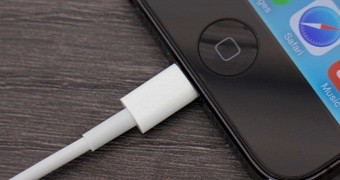One of the features said to be coming on the overhauled iPhone due this year is long-range wireless charging, and now a new report indicates that Apple is indeed exploring ways to make this happen.
Digitimes writes that a Taiwanese supplier has signed a huge contract with Apple that would have it supply components for what seems to be a wireless charging module for the iPhone.
“Lite-On Semi has reportedly obtained half of the orders for GPP bridge rectifiers that will be used in the wireless charger for the upcoming iPhones, the report cited industry sources as saying,” Digitimes writes.
So what does this mean? Is this a confirmation that Apple is indeed bringing wireless charging on this year’s iPhone? With Apple remaining tight-lipped on everything iPhone and with leaks not yet making the rounds, this is hard to say. But there’s no doubt that Apple is exploring a long-range wireless charging system for the iPhone.
How iPhone’s wireless charging system would work
Wireless charging is already a widely-adopted feature on today’s mobile phones, and there are plenty of Android phones that boast it already, including Samsung models.
But what Apple is trying to do for the iPhone is offer a wireless charging system that does not use a wire-connected plate for charging. Instead, the company wants the iPhone to charge wireless completely, using a long-range system that would employ a transmitter plugged into a wall socket across the room.
So basically, this means that should the iPhone get this feature, it would be capable of charging as long as it’s in the range of the transmitter, without the need for any cable. Apple has already been granted patents for this type of technology, but it’s not yet known if it can be ready for mass production this year.
At the same time, Apple is also believed to be working with Energous, a company that developed its own long-range wireless charging system called WattUp. The firm said the debut of its system was pushed back because of a strategic partnership with a third party, and it’s believed that the Apple was the company interested in implementing its charging module in the iPhone.

 14 DAY TRIAL //
14 DAY TRIAL //